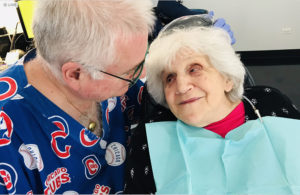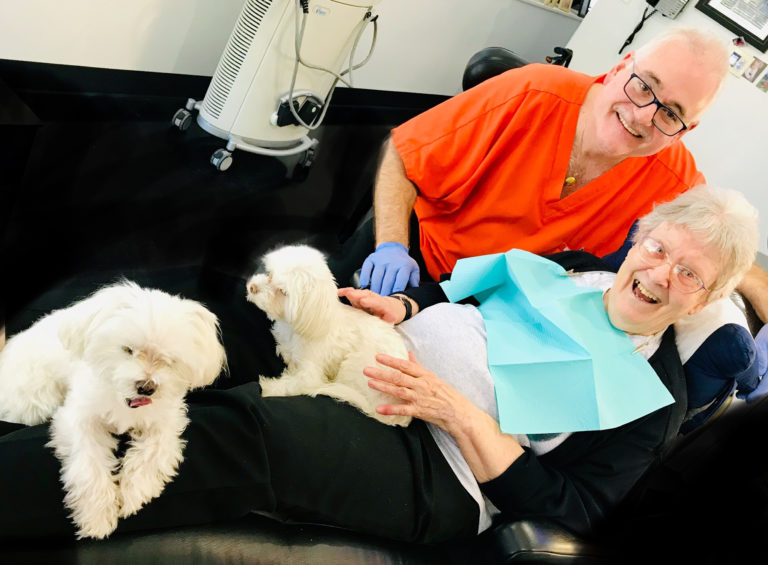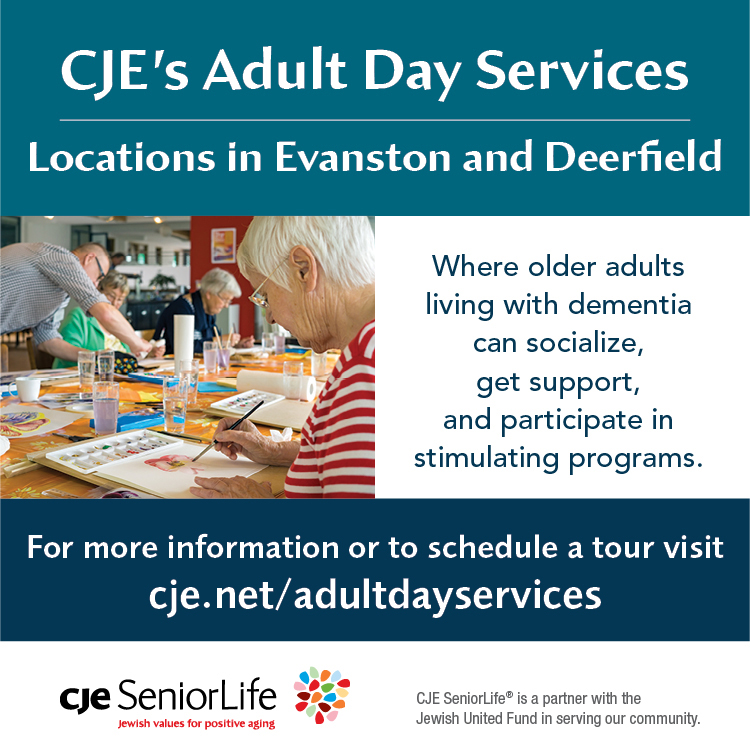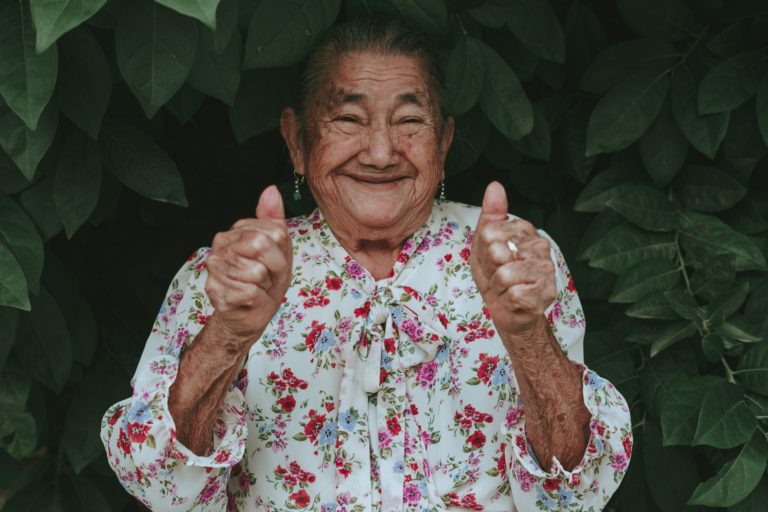
Nancy Maes, who studied and worked in France for 10 years, writes about health, cultural events, food and the healing power of the arts.
As you might expect, Walter Lamacki, DDS, a general dentist with Dental Health Onsite and editor of the CDS Review from the Chicago Dental Society, understands the value of good oral hygiene and a beautiful smile. Yet, many older adults in the Chicago area are unable to access or afford routine dental care, which Medicare does not cover.
While good oral care has a positive impact on the physical health of older adults, it also plays an important role in overall well-being.
Lamacki remembers one man who asked him to help a family member who was in his care. The front teeth of the woman’s bridge had snapped off, and the caregiver wanted to restore her dignity. When the woman looked in the mirror after Lamacki completed the work, she broke into a big smile. Lamacki did, too.
“That’s the satisfaction of being a dentist, to give people their dignity,” Lamacki says.
Oral hygiene neglect can have repercussions on a person’s health, self-esteem, and quality of life, especially as people age. Still, not everyone prioritizes dental care, for a variety of reasons. Some don’t understand the importance of oral hygiene; others have financial or other barriers to access dental care. Some people haven’t felt safe going to the dentist during the pandemic, and others simply don’t like seeing a dentist — pandemic or not.
Multiple times a week, Lamacki does his part to combat those barriers. He travels with a full array of portable professional dental equipment to senior living communities. There, he treats tooth decay and gum disease, creates new dentures, and more. The cost is comparable to customary private dental fees.
When he treats older adults in memory care communities who are reluctant to have their teeth examined, he takes advantage of the fact that many are able to recall favorite pieces of music they enjoyed long ago. One woman grew more comfortable with him after they sang “I’m Forever Blowing Bubbles” together. Another was able to relax after listening to her favorite aria by Johannes Brahms on a smartphone.
Importance of oral care
Statistics from the Centers for Disease Control and Prevention tell a disturbing tale when older adults don’t practice proper oral care. One out of 5 adults 65 and older has untreated tooth decay, and 68% have gum disease. Another 13% of adults between the ages of 65 and 74 have lost all of their teeth, and that number jumps to 26% for adults age 75 and older.
These figures don’t come about overnight. They result from extended lapses in oral care. If daily brushing and flossing don’t remove plaque, gingivitis — a mild gum disease that causes redness, swelling, irritation, and bleeding — can set in. Plaque can harden into tartar and lead to periodontitis, a more serious gum disease that can result in the loss of teeth and bone.
When dental problems go untreated, they can make speaking and eating difficult, says Dean Nicholas, DDS, president of the Chicago Dental Society.

“Broken teeth or sharp teeth can prevent [older adults] from moving their tongue to speak,” says Nicholas, who practices general dentistry in Lombard. “Loose or missing teeth make it hard for them to chew their food, which is the first part of digestion.” As a result, he says, older adults end up avoiding nutritious raw vegetables and fruits. Instead, they are limited to eating soft foods.
Many health problems correlate with poor oral health. The surgeon general’s report on Oral Health in America links oral infections to heart disease, lung disease, and stroke, because the infections can spread and cause inflammation elsewhere in the body. Poor oral care also correlates with diabetes, because it increases the risk of periodontal disease, which may make it harder to control blood glucose levels.
There are a range of health issues related to oral care. For example, if seniors leave dentures in all night, they risk developing pneumonia because harmful bacteria can develop in the mouth and travel to the lungs.
Another common problem is dry mouth, which can be a side effect from many medications ranging from antihistamines, antidepressants, and diuretics to those that treat heart disease and high blood pressure. CPAP machines for sleep apnea can also cause dry mouth.
Dry mouth is serious, Lamacki says, because it means the mouth doesn’t have enough saliva to keep the mouth clean, aid in chewing and swallowing, or help keep dentures in place.
While dentists can prescribe medications to counteract dry mouth, Nicholas says he encourages people to use mouth rinses without alcohol as well as sugar-free lozenges and suckers to increase saliva.
Increasing access
While the pandemic has prevented some older adults from seeing a dentist, many seniors skip the dentist because Medicare doesn’t cover most dental services, including cleanings, fillings, and dentures.
But some groups can help. The Chicago Dental Society website lists groups in the Chicago area that provide free or low-cost dental services. Some of these providers have temporarily stopped services because of the pandemic but plan to resume them. Others may have long waiting lists.
Many seniors face oral health issues that go deeper than an aching tooth or crooked smile. Staying on top of dental health — and finding low-cost resources to help — can improve older adults’ physical and psychological well-being — and let their beautiful smiles light up a room.








